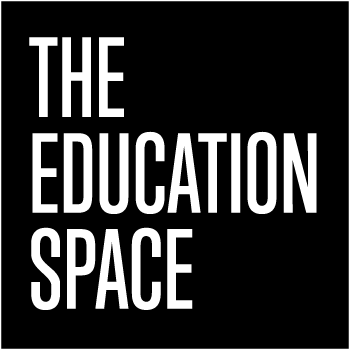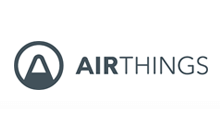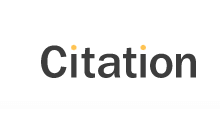 In recent months, there has been a shift within governance around the job title of those working to support both governing boards and schools to ensure that governance is effective and compliant. In fact, the term Governance Professional has been given greater emphasis in the new governance guides published by the Department for Education on 7th March 2024, for both maintained schools and academies.
In recent months, there has been a shift within governance around the job title of those working to support both governing boards and schools to ensure that governance is effective and compliant. In fact, the term Governance Professional has been given greater emphasis in the new governance guides published by the Department for Education on 7th March 2024, for both maintained schools and academies.
But whether the person sitting with you at your board table is referred to as Governance Professional or Clerk, the task of providing a professional set of minutes, plus many other responsibilities, are essentially the same. Minute-taking or “clerking” is just one facet of the wider role, so for the purposes of this article it is perhaps simplest to use the word “clerk”.
All boards must have a clerk. This is a key role in supporting your board to be as effective as it can be.
The clerk is appointed by the governing board/trust, not the school, and the role cannot be fulfilled by a governor/trustee, headteacher/CEO, or staff governor. These individuals may well make excellent clerks in other contexts but any conflict of interest between the clerk and the work of the governing board must be avoided.
So, what does the clerk actually do?
In real time, we appear at your board and committee meetings, gratefully enjoy your refreshments while frantically scribbling or typing away to record what is being discussed; the headteacher’s report, any staff or pupil presentations, question and challenge, decisions/actions, and policy approval. And the discussions which can sometimes be quite heated debates about matters of importance for which the board is responsible.
But then the meeting ends, and we leave along with governors, allowing the headteacher or site supervisor to lock up the school and go home themselves.
The meeting is over. Some people may well be going away with actions to complete, but what happens next for the clerk?
As a clerk of many years now, I often say that my ultimate post-meeting job is to turn what has been said into something that other people may want to read and can understand.
Whilst my own handwritten notes may well be largely verbatim, a professional set of minutes (except for such things as panel hearings) is far from a verbatim record.
So, when the meeting is over, that is when the clerk’s “real” work begins, in crafting a piece of professional writing from those scribbled notes or typed drafts.
But is that all that the clerk is responsible for? Well, no, quite the opposite in fact.
Although the Department for Education has now archived the Clerking Competency Framework, the information in this document nonetheless provides sound guidance around the role of the clerk. It states that:
“Professional-quality clerking is about much more than taking minutes to record the discussions and decisions of the board. It is also about providing governing boards with expert advice on governance, procedures, and compliance, and directly contributing to its efficient conduct. […] Professional clerking has a vital role to play in meeting the administrative and procedural requirements of boards and enabling efficient and effective discussion and decision making.”
Furthermore, The Key for Governors states that your clerk will (and this is by no means a definitive list):
- Have a solid understanding of governance: keeping you up to date with changes to guidance and/or education policies, understanding the key features of effective governance and the context in which your board operates including strategic priorities, culture, value, and ethos.
- Keep your board running smoothly with efficient administration: advising on points of order or procedure, conflicts of interest, confidentiality, elections and appointments, preparing minutes, and maintaining your board’s records.
- Provide your board with advice and guidance: knowing how to find credible information to support your board’s discussions, understanding your board’s legal and contractual duties and providing advice on where to go for additional support or guidance.
And perhaps most importantly, your clerk will keep you focused on your role by helping you to avoid getting caught up in operational issues and by alerting you or the chair where you’re at risk of overstepping your strategic role or not following the code of conduct.
In all the above, The Education Space clerks are trained professionals, receiving termly briefings and updates from the Governor Services team, so please use us to our full potential.
At The Education Space we do of course have a two-tier structure whereby some of the above will be provided by your Governing Board Support Officer, but it is the clerk who is at the “coal face” in attending meetings.
Rather like the monarch, we do not have a constitutional right to govern but we are there to “be consulted, encourage, and warn” which rather loosely sums up our role as an independent advisor to the board.
Comparing the clerk with the monarch perhaps sounds slightly treasonous, but I’m told the Tower can be quite pleasant at this time of year!
But we are indeed governance professionals there to support you in your board’s work.
One thing that the pandemic taught us in governance, is to have greater confidence using in using technology and online facilities.
At The Education Space we use Governor Hub for storing and sharing information. While it was once the case that your clerk would arrive at meetings laden with hard copies of minutes for the chair to sign, I am reliably told (by a National Leader of Governance) that signing minutes on Governor Hub is a method which satisfies Ofsted inspectors. So, I would encourage any board which does not actively use Governor Hub to start to do so. It is a service included by NPW/The Education Space and is well worth exploring. We can also provide bespoke training on this upon request.
The use of technology generally seems to be expanding at an ever-increasing rate these days, and although artificial intelligence (AI) has been around for many years now, it is a term which we are encountering more and more in all walks of life.
As mentioned earlier, technology can play a valuable part in streamlining the work of the board, but can it really replace the clerk?
The facility for voice recognition and recording and transposing it into text is nothing new, and in recent years this has certainly improved in quality for even the home user. But could a machine craft a recording into that professional set of minutes which other people may want to read and understand? Could it provide advice and guidance as required on an ad hoc basis? Would it know when the chair has returned to the meeting having just been re-elected for a further term of office?
And most importantly, could AI politely nudge the chair, if necessary, when the meeting is veering into the operational not the strategic, when governors get involved in side-conversations, or that agenda item is accidentally overlooked? For now, I would suggest not, although on the other hand, it wouldn’t eat your biscuits!
For governing boards to be effective, good interpersonal relationships are required, including with the clerk. And interpersonal relationships need people!
I will end simply by saying, on behalf of myself and all my clerking colleagues, please put the kettle on and bring out the “good” biscuits.
Anne Sundberg
Governing Board Development Officer




